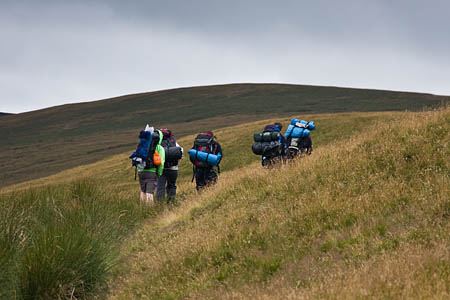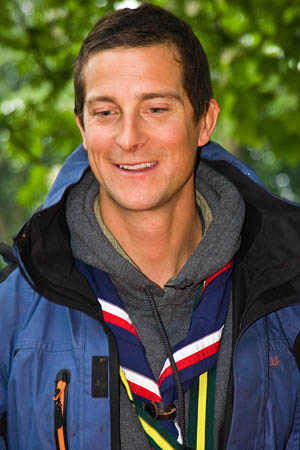Bacon comes from sheep, according to more than a quarter of teenagers, and a Dalek is more familiar to many youngsters than a magpie.
More than a third of children avoid playing outside because they don’t want to get their clothes dirty, with the result that two-thirds take part in outside play less than once a week.
These survey results paint a picture of a public that is ‘terrified of the countryside’ according to the National Trust’s director-general Fiona Reynolds.
The stark warning as the trust launched its Outdoor Nation campaign at its annual meeting. Participation in simple outdoor activities, such as taking a short walk every day, offers the chance to improve the quality of life, health and wellbeing.
The National Trust said that surveys show as little as five minutes ‘green exercise’ can have a significant effect on self esteem in a nation where 1 in 4 adults experience mental illness in their lifetime, at an annual cost of £77bn to the economy and that walking may protect the brain against shrinking and preserve memory in the elderly.
Ms Reynolds said: “For generations we worked the land, marvelled at its beauty through art and literature and explored our country paths and mountains. For some, these pleasures remain one of the great joys of life.
“But we can’t ignore the fact that, whether through pressures of time or physical access, as a nation we seem to be increasingly disconnected from the fabric of the country and there is a real danger of a ‘generational gap’ opening up where young people feel terrified at the prospect of going into the countryside.
“As the caretaker for coast, countryside and local green space, equivalent to the size of Derbyshire, it’s important for the trust to understand whether we really have lost touch with the outdoors, if it matters, and if so, what we can do to help.
“The Government’s forthcoming natural environment white paper offers a once-in-a-generation opportunity to start focusing on bridging the growing gap between people and the natural environment.
“We hope our Outdoor Nation project will help foster local and national partnerships that can help deliver on the huge opportunities offered by the outdoors as we look to its ongoing protection and promotion.”
The trust’s ‘roving reporter’ will cross the country talking to people and organisations to record their experiences in the outdoors and the results will be published on the Outdoor Nation blog.
Richard Louv, author of Last Child in the Woods and co-founder of the Children & Nature Network, said: “I saw the problem first in America and thought it might be unique to us, but I’ve since seen it everywhere in the western world: Australia, Europe, everywhere.
“The UK is no exception. Nature-deficit disorder poses real risks. If our children lose their connection to the natural world, future generations might never get it back.”
Organisations such as the Scouts, Girlguiding and the Duke of Edinburgh’s Award work with young people to get them into the great outdoors.
Chief Scout, Bear Grylls, said: “It’s so important that we don’t lose our connection with the natural world around us. It is such a big part of what makes life special.
“Giving every young person an adventure in the outdoors is what Scouting is good at, and young people today need that adventure in their lives more than ever. Outdoor adventure empowers and brings confidence to people that society can often leave feeling vulnerable and disconnected.”
Although many people associate the trust with stately homes, the National Trust for Places of Historic Interest or Natural Beauty was originally formed to preserve and conserve open spaces. It owns more than one per cent of the countryside in England, Wales and Northern Ireland – about 2,250 sq km (985 sq miles), including a quarter of the Lake District and sizeable parts of Snowdonia and the Peak District.
A separate organisation, the National Trust for Scotland, operates north of the border.


